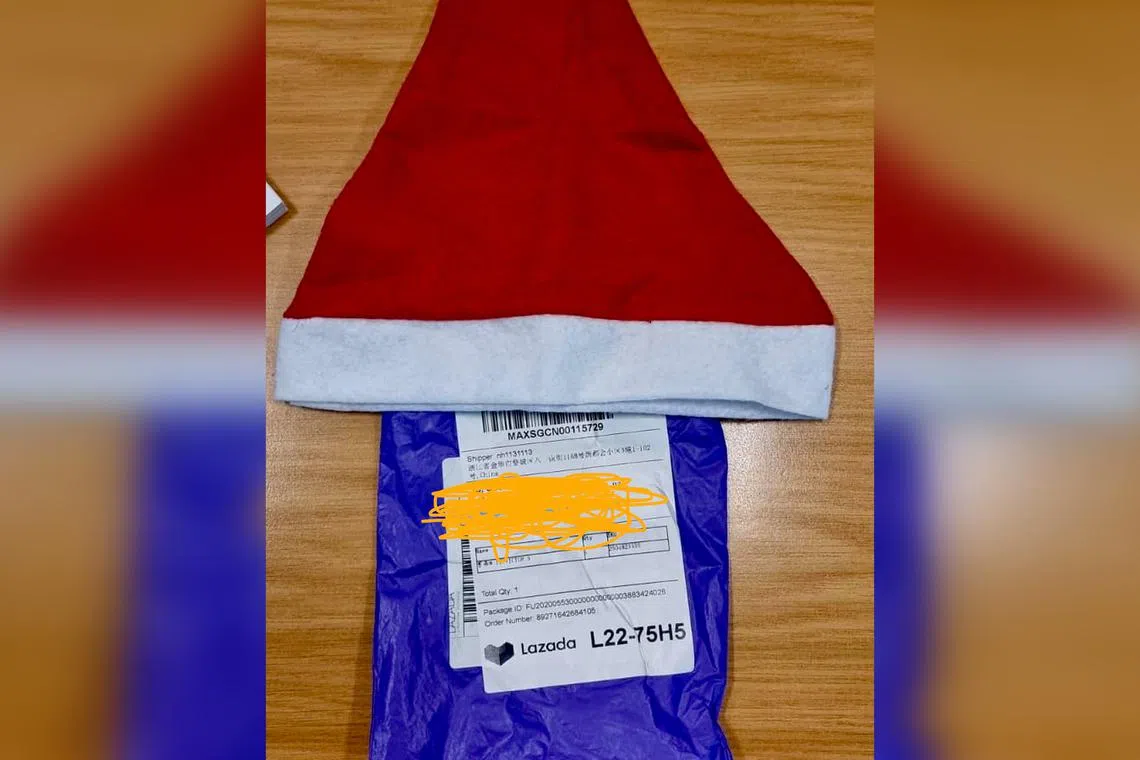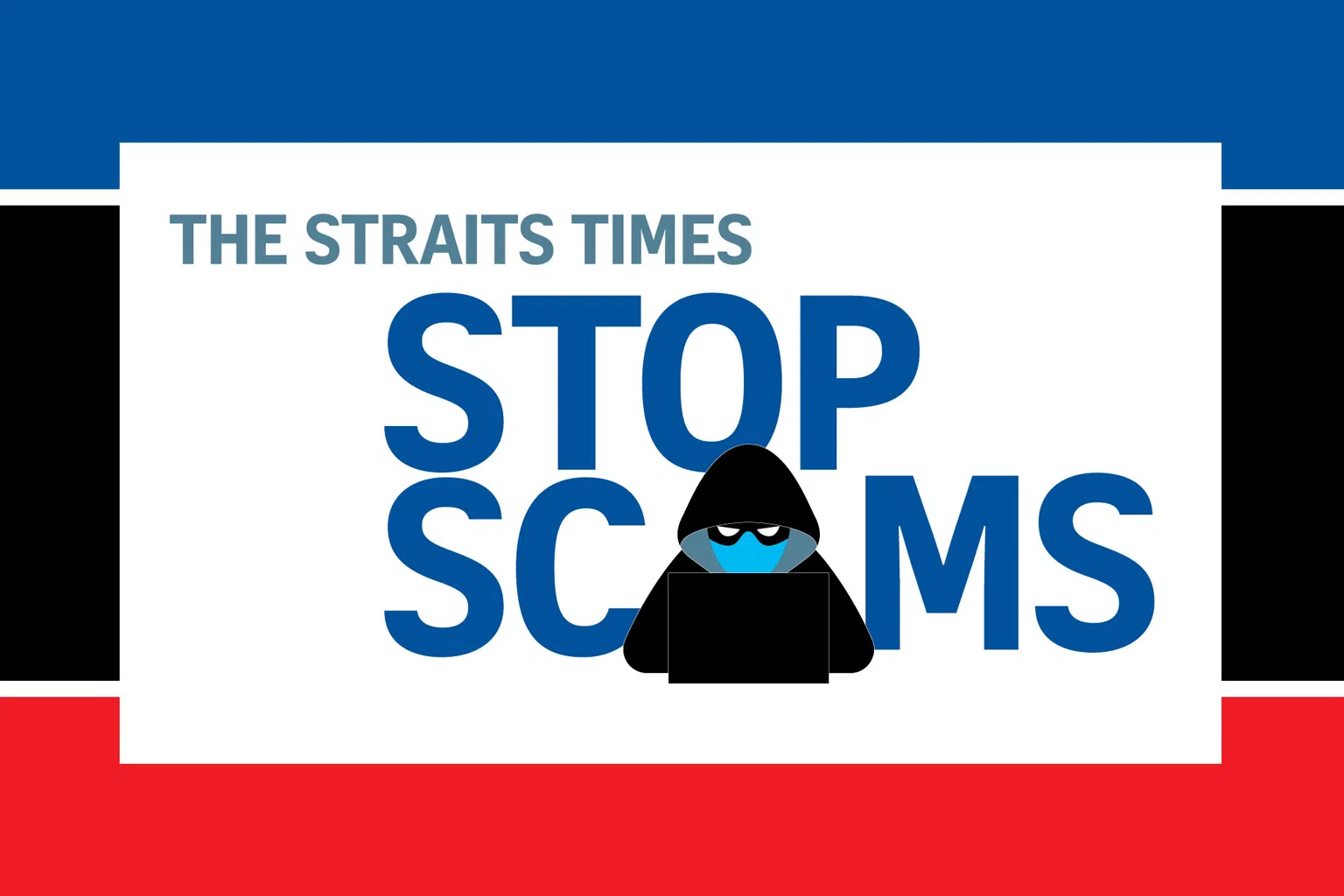Man orders gaming headset for Christmas, gets Santa hat instead in e-commerce scam
Sign up now: Get ST's newsletters delivered to your inbox

Mr Chen Jinfu received a Santa hat in December instead of the gaming headset he had ordered from Lazada.
PHOTO: COURTESY OF CHEN JINFU
SINGAPORE – When Mr Chen Jinfu ordered a gaming headset from e-commerce platform Lazada in December, he did not expect to receive a Santa hat.
The 41-year-old sales manager of an electronics company found out he had been cheated only when his colleagues, who received the parcel sent to his office, asked him whether he had bought a Santa hat for Christmas.
Speaking to The Sunday Times, Mr Chen said: “When I saw the Santa hat, I thought… what is this? Something has gone wrong.
“At first, I thought that perhaps the seller packed the wrong item. But when I told my friends, they said I was not the only one who has been receiving Santa hats in the mail.”
The Sunday Times found several Facebook posts in which shoppers mentioned they had received Santa hats instead of the items they ordered on Lazada.
On Dec 23, Mr Chen made a police report and contacted Lazada, with the company sending him a refund of $48.65 for the item he bought.
He said: “You wouldn’t think this could happen. I saw that there was a 50 per cent discount, but I thought, it was the Christmas period, even legitimate brands have sales.
“The scammers really picked the right time during the festive season to target consumers. Some people may have just accepted the Santa hat and incurred losses.”
In the first six months of 2022, e-commerce scams were the third most common scam type. There were 2,267 cases reported during this period, up from 1,057 between January and June 2021.
In response to queries from The Sunday Times, Lazada said on Friday it has a zero-tolerance policy for scams. In December, Lazada introduced a buyer confirmation button, which allows customers to update the e-commerce platform if the item they receive meets their expectations.
Lazada said: “If a fraudulent seller sends a different product, customers can respond by not clicking the (button) and filing for a refund, and this ensures that payment is not made to the fraudster.”
The Straits Times reported that a foreign domestic worker had in April 2021 received a water bottle after paying $69 for a bottle of perfume
Professor Lawrence Loh, director of the Centre for Governance and Sustainability at the National University of Singapore (NUS) Business School, said that it may be difficult to nab the sellers behind e-commerce scams.
Prof Loh said: “An e-commerce platform is like a very big shopping mall. You can’t go shop by shop to check all the products. Customers should look at reviews as much as possible and remember not to click a buyer confirmation button to obtain a refund within a fixed period of time.”
The police have advised the public to always verify the buyer’s profile on online marketplaces by checking the account’s verification status, creation date, reviews and ratings.
Customers should also report any suspicious users and fraudulent transactions to the e-commerce platforms involved.

Correction note: This story has been edited for clarity.



